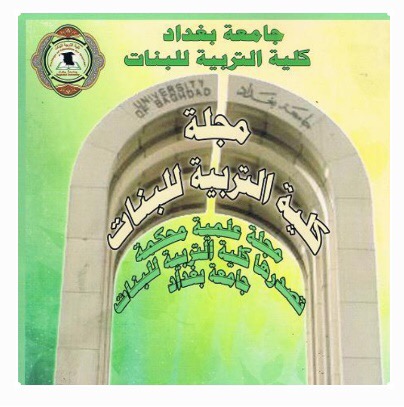دور الحديقة المدرسية واهميتها في البناء المدرسي - دراسة ميدانية في الخدمة
الملخص
This research concerns the fact of the school garden and how can we tackle this issue. The research starts with a question forwarded to those who are interested in the ministry of education matters; the question is that how is the extent of interest in the school garden project? And how it is activated in the Iraqi Educational Institution program? In addition, the analysis reveals the importance of the school garden since we, as teachers and students, suffer from seeing the view of the trashes, the wastes of school furniture, the stinking water and the weeds and how it is accumulated in the back yard of the school. To add fuel to the fire, the increase in number of the students; year after year. This increase leads to adding more classes to the school building against the green yard.
The research clarifies that the school garden eliminates the phenomenon of desertification, participates in weather moderation and gives happiness to both the students and the teachers. While disregarding the school garden obstructs the success of teaching process that the school aimed at, since the school is created by the society to make it the second educational institute in the student’s life. This institute originates the generations of the future life. Thus, there should be existed the financial and human resources to help in completing these functions.
The financial capacities means providing a good building that is similar to those in the developed countries which is considered as a factory that raises new generations who love their country and society and able to create, give and be self-sufficiency. In the other hand, the human resources means the teachers groups and the scientific and educational organizations.
The research reaches at these recommendations:
1. Organizing edification courses for the teachers about the school environment and health and the importance of the school garden and how to take care of it; since the teacher is considered as a main factor in the success of the environmental education and fulfilling its goals.
2. Organizing periodical campaigns that concern school cleaning and repairing for the garden and the other things in the school building; involves fill the ponds inside and outside the school building in cooperation with the Municipal Council and Health department. Such campaigns quit the increase of the diseases that ponds bring from the stinking water.
3. Establishing annual competitions for the most beautiful school garden involves all the schools in the capital Baghdad or the schools of the whole country. In addition, establishing food competition involves the fruits and dates that the trees in those schools give, to save money for the school gardens themselves.
4. The interest in school gardens participates in raining both the food product and the education level for the students, for it provides nice weather and work opportunities for the students and the other people in the school region.
5. The role of the school garden must not be ignored for it gives economic, social and psychological benefits for the society and its people. All of which provide good opportunities for the students to practice healthy exercises and considered as places that attract the students. This type of work brings relief and comfort to the students’ spirits. Besides, it allows them acquiring good habits.6. The interest should involve taking care of other things in the school building such as the library which involves periodical renewing of the books, the laboratories and the school masque.
Eventually, the reconstruction of the school buildings in a way that goes with the educational goals create a generation who loves his society, has self-confidence and protects his social possessions that is worthy of his personality and the others personalities. Such positive sides prepare a good generation and take them away from complaining and hating the school itself.













